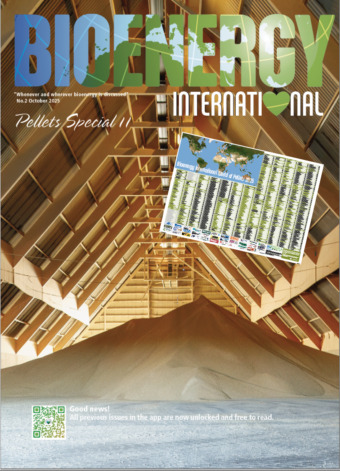The Swedish and Danish gas transmission network companies Swedegas AB and Energinet have announced a decision to make the necessary investments to integrate the gas markets in Sweden and Denmark. According to a joint statement, this initiative will reinforce the security of supply and lead to more participants entering the gas market. It is also in line with the European Union’s endeavour to harmonise markets within the EU.

Working closely with other gas market bodies – end-users, suppliers, system operators and regulatory authorities in both Sweden and Denmark – the conditions for joint balancing and trade have been analysed in detail during the past year. According to the duo, market integration offers several benefits:
- Improved security of supply by merging the transmission systems and as a result becoming more robust and less sensitive to variations
- More gas traders on the market mean increased competition, benefitting end-users
- More effective administration.
This development of the Swedish gas market is taking place with the end-user firmly in focus. Our ambition is to make it straightforward and attractive for industry, the transport sector and households to choose gas, including renewable alternatives, said Johan Zettergren, CEO at Swedegas.
A gas infrastructure company operating on the Swedish west coast, Swedegas owns a gas transmission network that extends from Dragør in Denmark to Stenungsund in Sweden. The network supplies 33 municipal areas with gas, as well as industrial enterprises, combined heat and power (CHP) plants and filling stations.
Swedegas is in the process of developing new infrastructure for biogas, hydrogen gas and liquefied natural gas (LNG) and the aim is for the joint balancing zone to be operational by April 2019. Discussions are taking place with market organisations to determine which adaptations and adjustments to IT systems and routines will be required as part of the preparatory process.
A joint balancing zone will make the Danish/Swedish gas market more interesting. We will now begin to develop the solution in collaboration with the market bodies concerned in order to optimise the value,” said Jeppe Danø, Director, Gas System Operator, Energinet.
Energinet is an independent public enterprise, owned by the Danish Ministry of Climate, Energy and Building. It owns, operates and develops the electricity and gas transmission networks in Denmark with the aim of integrating more renewable energy, maintaining the security of supply, and ensuring market access to the networks on equal terms.
The company says that is developing the gas transmission network to prepare it for “the energy solutions of the future” and is also constructing new cross-border pipelines


